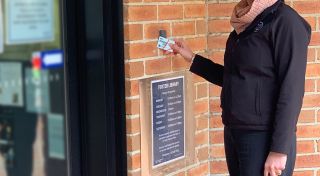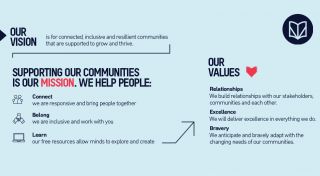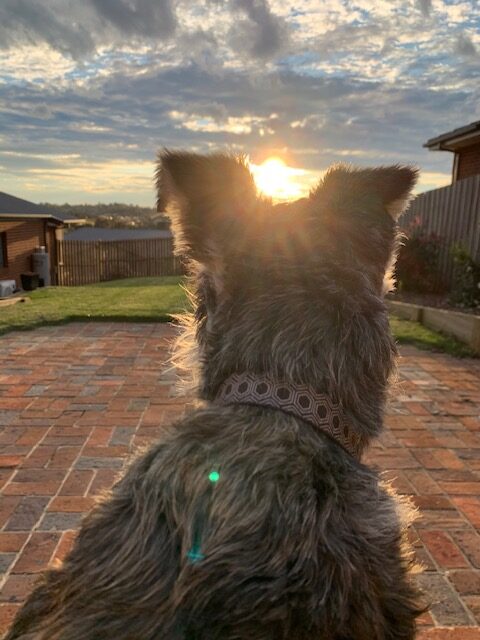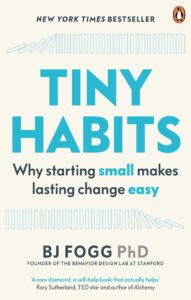Did you know sunsets are good for your health? Our Healthier Habit for July is to take the time to step outside and marvel at the beauty of the sunset.
Here at West Gippsland Libraries, our team frequently share photos of the sunset. We take pictures out of library windows, stopped on the side of the road on the way home and in our backyards. All of these photos got us thinking, why do we love the sunset so much, and how can sunsets help your mental health?
- No matter what is happening in the world, the sun always rises and sets and reminds us that we are indeed part of a powerful cycle of nature. The beauty of sunset (and the sunrise) is that no two sunsets are ever the same, and each one is like a show created just for you.
- Observing a sunset can slow down your perception of time and help you feel more present and ‘in the moment’. While many of us take photos of the sunset, you might also find that you are more inclined to put down your phone and be genuinely present watching the ever-changing colours.
- Sunsets can only be adequately viewed from the outside, and you’ll get some fresh air while you’re out there! Sometimes it is only possible to take a glance at the sunset as you are rushing home from work and shuttling between after-school activities, but try to get outside once or twice a week to watch. While you can view the sunset from your driveway, commit to taking a short walk to find the best vantage point, and make that walk a little longer each time.
- Viewing the sunset is the perfect time to practise mindfulness. Take the time to think about your day and say goodbye to any stress or worry. Take some deep breaths and release the tension in your shoulders. Perhaps you’ve had a great day, so visualise the scene before you as a celebration of all the good things that happened. Some cultures view the sunset as a nightly celebration and cheer and clap as the sun sets below the horizon.
If you would like to read more about sunsets and their positive impact on mental health, take a look at this article by Psychology Today.
We are reading – Tiny Habits by BJ Fogg
BJ Fogg is the founder and director of the Behaviour Design Lab at Stanford University and has written a book called ‘Tiny Habits: The Small Changes that change Everything’. He and his team realised that changing habits (starting a new good habit or trying to stop a perceived bad habit) is one of the hardest things to do. It’s so easy to start a new day, full of enthusiasm and confidence, only to feel like a failure before the day is out. BJ recommends starting with tiny steps using a straightforward formula that actually works – many of the WGL staff can vouch for this!
Tiny Habits is available to borrow as a book and ebook.
Podcasts we love – Happier with Gretchen Rubin
This podcast is hosted by author Gretchen Rubin and her sister Elizabeth Craft. It gives practical strategies on developing good habits, and tactics we can all use to live happier lives without depending on external entities.
July Events –
- Dry July
- NAIDOC Week
- National Diabetes Week – 11th-17th July
Local Events –
- NAIDOC Week Indigenous Art Exhibition: Arts Space Wonthaggi 1-10th July
- Business in Baw Baw Resilience & Innovation Summit: Warragul Country Club – 30th July
- Artists in Spaces: Leongatha, Korumburra, Mirboo North – ends 7th July
Extra Support –
The opinions and recommendations in this blog do not replace advice from your doctor or mental health practitioner. If you feel like you need further support, you can access many free mental health helplines, support websites, online counselling, web forums, interactive toolkits, one-on-one counselling and group therapy sessions. Please visit the Better Health website for a comprehensive list of services.
Mental Wellbeing at WGL –
The Healthier Habits blog is adapted from West Gippsland Libraries employee ‘Page Break’ program. Page Break is an initiative from our Manager Volunteers & Community Participation, Kathie Olden. Kathie sends out regular updates to staff inviting them to participate in simple activities and conversation starters that focus on making small changes to their mental health and wellbeing.































Comments